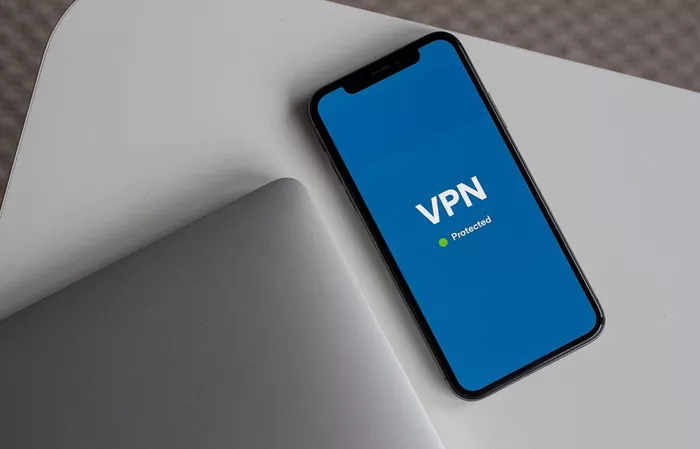VPN proxies combine the benefits of virtual private networks (VPNs) and proxy servers to enhance online privacy, security, and access to restricted content on mobile devices. Understanding how to use a VPN proxy on your mobile phone can protect your data, mask your IP address, and give you freedom on the internet.
Understanding VPN and Proxy: Key Differences
A proxy server routes your internet traffic through an intermediary server, changing your IP address but typically without encrypting your data. This means your traffic can still be visible to others monitoring the network. Proxies are useful for low-security tasks like accessing geo-blocked websites but do not provide comprehensive privacy or security.
In contrast, a VPN encrypts all internet traffic between your device and the VPN server, creating a secure tunnel that hides your IP address and protects your data from interception. VPNs are ideal for high-security needs such as using public Wi-Fi or bypassing censorship.
A VPN proxy service often combines these functions, offering IP masking with encryption for enhanced privacy and security on mobile devices.
Why Use a VPN Proxy on Mobile?
Using a VPN proxy on mobile devices offers several advantages:
- Privacy: Masks your real IP address and encrypts your data to prevent tracking.
- Security: Protects sensitive information, especially on public or unsecured Wi-Fi networks.
- Access: Enables access to geo-restricted or censored content.
- Performance: Some VPN proxies optimize routing for better speeds compared to standard VPNs.
- Flexibility: Allows selective routing of traffic through proxy or VPN depending on needs.
How to Set Up and Use VPN Proxy on Mobile
Step 1: Choose the Right VPN Proxy Service
Select a reputable VPN proxy provider that supports mobile devices. Look for features such as strong encryption, no-logs policy, wide server locations, and easy-to-use mobile apps. Some VPN providers include proxy features built into their apps.
Step 2: Install the VPN Proxy App
Download and install the VPN proxy app from your device’s official app store (Google Play Store for Android or Apple App Store for iOS). Ensure the app is from a trusted source to avoid security risks.
Step 3: Configure VPN Proxy on Your Mobile Device
For Android Devices
You can set up VPN proxies either via the app or manually through system settings:
- Using the App: Open the VPN proxy app, sign in, and connect to a server. The app will automatically configure your connection.
- Manual Setup: Go to Settings > Network & Internet > VPN. Tap “Add VPN” and enter the VPN proxy details provided by your service (server address, username, password, etc.). For proxy settings on mobile data, modify the Access Point Name (APN) by entering the proxy IP and port under Settings > Network & Internet > Mobile Network > Advanced > Access Point Names.
For iOS Devices
On iPhones and iPads, VPN proxy setup is similar:
- Install the VPN proxy app and follow the in-app instructions to connect.
- Or configure manually via Settings > General > VPN > Add VPN Configuration, entering the required server and authentication details.
Step 4: Connect to the VPN Proxy
Once configured, activate the VPN proxy connection through the app or system settings. Your internet traffic will now be routed through the VPN proxy server, masking your IP and encrypting data as configured.
Step 5: Verify Your VPN Proxy Connection
Confirm the VPN proxy is working by checking your IP address using online tools or services like WhatIsMyProxy. This will show if your traffic is routed through the proxy or VPN server.
Advanced Usage: Sharing VPN Proxy Connection on Mobile
You can share your mobile VPN proxy connection with other devices, useful if only one device has VPN proxy capability. Apps like Every Proxy allow you to create an HTTP/S proxy server on your primary Android device, which secondary devices can connect to over the same Wi-Fi or a mobile hotspot.
Setting this up involves:
- Installing Every Proxy on the primary device.
- Configuring VPN client settings to allow proxy traffic.
- Starting the proxy service within the app.
- Connecting secondary devices to the same network or
- hotspot and configuring them to use the proxy IP and port provided.
This method requires careful setup of network bridges and permissions but allows multiple devices to benefit from the VPN proxy connection without installing VPN apps on each device.
Tips for Optimal VPN Proxy Use on Mobile
- Choose servers close to your location for better speed and lower latency.
- Disable battery optimizations for VPN proxy apps to prevent disconnections.
- Use strong authentication credentials to secure your VPN proxy connection.
- Regularly update your VPN proxy app for security patches and feature improvements.
- Test your connection after setup to ensure traffic is properly routed and encrypted.
Common Issues and Troubleshooting
Some common challenges when using VPN proxies on mobile include:
- Connection drops: May be caused by battery saver settings or unstable networks.
- Slow speeds: Can result from distant servers or overloaded proxy nodes.
- Incompatibility: Some apps or websites may block VPN or proxy traffic.
- Incorrect configuration: Manual setup errors in server address, port, or credentials.
Resolving these issues usually involves checking settings, switching servers, or contacting your VPN proxy provider’s support.
Security Considerations When Using VPN Proxy on Mobile
While VPN proxies enhance privacy, users should be aware of security aspects:
- Not all proxies encrypt traffic; ensure your VPN proxy uses strong encryption.
- Use trusted providers with transparent no-logs policies to avoid data misuse.
- Be cautious with free VPN proxies, as they may log or sell your data.
- Keep your device’s operating system and VPN proxy app updated to protect against vulnerabilities.
Conclusion
Using a VPN proxy on mobile is an effective way to secure your internet connection, protect your privacy, and access restricted content. By choosing a reliable service, properly configuring your device, and following best practices, you can enjoy a safer and freer mobile internet experience.


